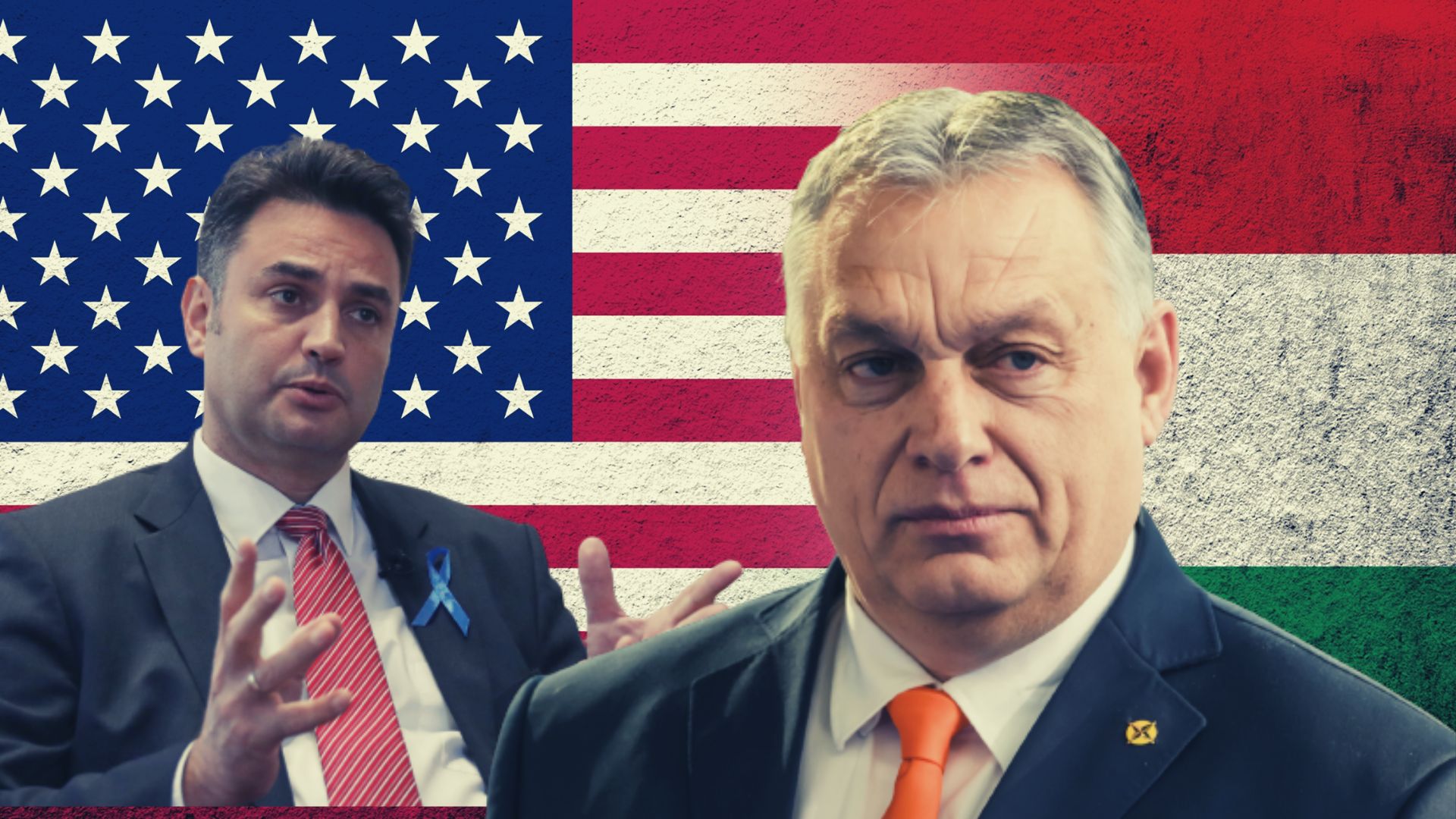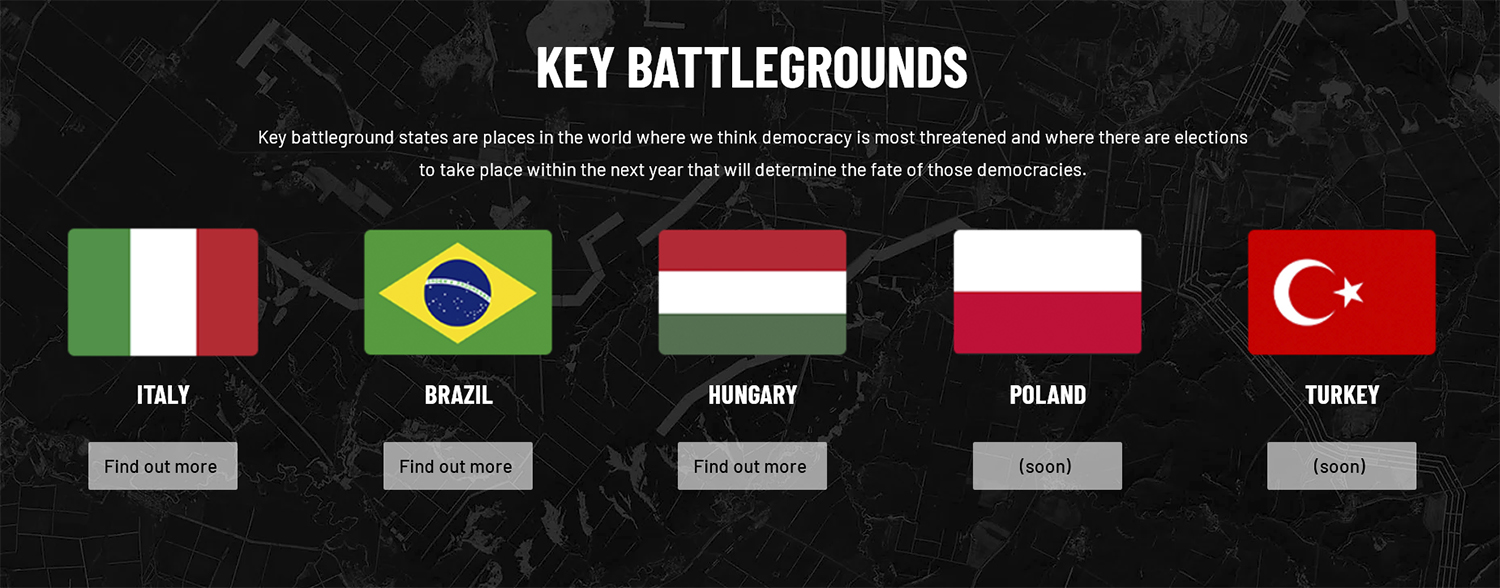US-based NGO funneled millions to Hungary’s left to influence national elections, also plans to target democracies in Italy, Brazil and Poland
In recent years, those who made claims about American influence on Hungary’s domestic political scene were often smeared as “paranoid” or prone to falling for “disinformation.” However, such fears appear to be well-founded after it was revealed that the campaign organization of Péter Márki-Zay, the Hungarian left’s candidate in April’s parliamentary elections, said his campaign received 1.8 billion forints (€4.48 million) in mostly U.S. donations through an NGO with close ties to billionaire oligarch George Soros, officials connected with Hillary Clinton and a number of leading transatlantic organizations such as the Council on Foreign Relations.
The enormous sum of money, at least by the standards of Hungarian elections, reportedly came from the U.S.-based Action for Democracy NGO, which Márki-Zay said was given to his campaign organization MMM, according to an investigative article on news portal Index.
EXCLUSIVE: George Soros funds 8 out of 11 of Facebook’s fact-checking organizations in Central and Eastern Europe
This information is now coming to light at a time when the left in the United States has long promoted unfounded accusations of “Russian interference” in the 2016 U.S. presidential elections, claiming that Donald Trump was elected only with the help of the Russians, and therefore his presidency was “illegitimate.” The revelation that Action for Democracy handed millions to influence a foreign election does not just have implications for Hungary either, as the NGO is actively trying to influence elections around the world.
Despite Márki-Zay’s comments that he received millions in funding from Action for Democracy, in a strange twist, the NGO has claimed that not “a single cent” was given to MMM. Instead, the NGO wrote, “We do not support electoral campaigns, in Hungary or anywhere else, only civic organizations on the front line of defending democracy. Our support to MMM was exclusively for informational purposes.”
Yet, in the same statement, Action for Democracy, wrote “the support we collected and disbursed to MMM — along with other Hungarian NGOs, such as Nyomtass-Te-Is — come from thousands of donors.”
In what appears to be completely contradictory assertions, the NGO claims it did not give a single cent to MMM and then at the same time, writes that it “disbursed” funds from “thousands of donors” to MMM and other NGOs. Furthermore, Action for Democracy featured the MMM logo on its website before it was abruptly taken down after Márki-Zay said he received millions in funding from the organization.
In short, the NGO may have created a legal basis for denying it gave funds to Márki-Zay, but it is still saying it “disbursed” funds from thousands of donors directly to MMM.
Márki-Zay has also been openly discussing this funding from Action for Democracy, saying he is especially grateful to Kati Marton, the chairman of the advisory board of Action for Democracy, who collected the donations “among Hungarians and Americans abroad.” It is worth noting that the writer behind the Index article is András Schiffer, who is associated with the political leftist opposition and is a former MP of the Green LMP party
What does Action for Democracy do?
Action for Democracy describes itself as “a global organization of concerned citizens who want to empower those who fight for freedom and democracy.” Hungarian news outlet 444.hu, which is known as a left-leaning media outlet, wrote that the “organization is preparing for a series of global campaigns to mobilize the progressive-liberal camp against the illiberal regimes in power.”
Action for Democracy’s website identifies five key “battleground states” — Italy, Brazil, Hungary, Poland and Turkey — which it describes as nations “where we think that democracy is most threatened.” That means the NGO may also be pumping millions in funding into upcoming elections in Brazil, Italy, and Poland in an attempt to sway the outcome of the vote.
The key figure and operative leader of Action for Democracy is Dávid Korányi, leftist Budapest mayor Gergely Karácsony’s chief adviser on city diplomacy, who was even flagged as a potential foreign minister in a Karácsony-led government. Another player in the organization is former foreign policy advisor to the last Hungarian Socialist prime minister, Gordon Bajnai, who held office before the conservative Fidesz came to power in 2010. Korányi went to the United States with the help of a scholarship from the German Marshall Fund and attended Johns Hopkins University, where he became a researcher at the SAIS Center for Transatlantic Relations.
Korányi has been the director responsible for Eurasian energy affairs at the Atlantic Council since 2012, and in this capacity he was even interviewed by the Senate committee. Korányi is also a member of the European Council on Foreign Relations (ECFR), a foreign policy lobby group; a strategic consultant at Globsec, and since 2019 a chief consultant at Budapest City Hall.
George Soros expresses hope for regime change in Hungary and China
The article from Index details additional webs and connections between members of Action for Democracy and the U.S. security state, investment banks, and prominent academic institutions, many of them funded by George Soros, such as the Council of Foreign relations and ECFR, which are both funded by Open Society Foundations.
Action for Democracy’s board of advisors is headed by Hungarian-American author and journalist Kati Marton, widow of U.S. diplomat Richard Holbrooke. Other prominent advisors include British historian and author Timothy Garton Ash and former U.S. general Wesley Clark, with whom Márki-Zay consulted in the last stages of the 2022 Hungarian election campaign.
Schiffer, in his article for Hungary’s Index news outlet, concludes his piece by highlighting how the advisors of the Action for Democracy NGO are a variety of powerful individuals with connections to some of the most poweful organizations, businesses, and government sectors of the United States and the broader West.
Schiffer writes:
“There is no doubt that (…) at the intersections in the spider web emerging from the connections of the people who mark Action for Democracy, we can also see the White House, foreign affairs and intelligence apparatuses of the Democratic administrations (the ‘non-existent’ deep state), along with individuals from Johns Hopkins University, the German Marshall Fund, the National Endowment for Democracy, which was admittedly created as a tool of ‘soft power,’ the Center for American Progress, as well as advisors from Lehmann Brothers, the domino that started the 2008 global financial crisis, along with other Wall Street titans, Big Tech, and also certain actors from Big Pharma.”
Source: Remix News






